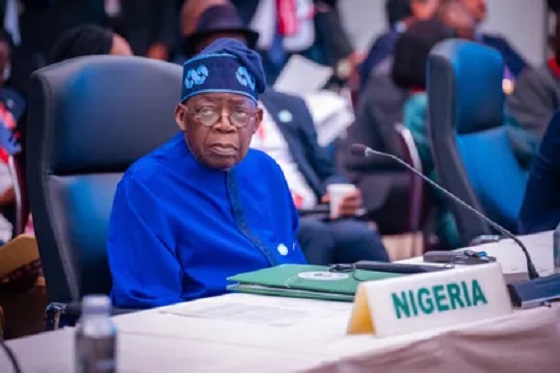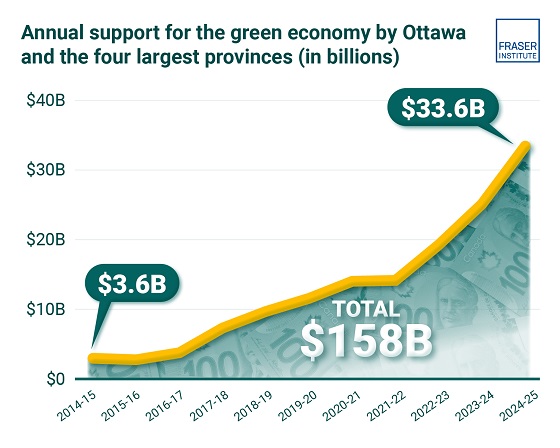International
Hawaii spared as tsunami causes no serious impact

Quick Hit:
Hawaii avoided serious damage overnight Wednesday after tsunami waves from a massive 8.8 earthquake off Russia reached the islands. Evacuation orders were lifted as officials confirmed no major impact.
Key Details:
- The earthquake struck near Russia’s far eastern coast Tuesday night, triggering widespread tsunami alerts from Japan to the U.S. West Coast.
- In Hawaii, wave heights reached up to 1.8 meters (nearly 6 feet), preceded by early evacuations, blaring sirens, and brief airport closures.
- Hawaii’s Emergency Management Agency reported no major damage, and by evening, the threat level was downgraded, though beaches remained potentially hazardous for swimmers and boaters.
Diving Deeper:
A massive 8.8-magnitude earthquake off the eastern coast of Russia triggered tsunami warnings across the Pacific overnight Wednesday, but Hawaii ultimately avoided significant damage. According to the Pacific Tsunami Warning Center, while initial waves reached the islands around 8 p.m. local time Tuesday, the threat of a large-scale tsunami was ruled out “based on all available data.”
The Hawaii Emergency Management Agency confirmed that evacuation orders were lifted shortly after the first waves arrived. “There were no reports of major damage,” the agency stated.
Early wave measurements showed tsunami activity reaching around 3 feet at Hanalei and roughly 4 feet at Haleiwa on Oahu’s North Shore. Later readings peaked near 5.7 feet. Though not catastrophic, the waves still posed risks to swimmers and boaters. The agency emphasized continued caution for anyone near the shoreline.
The massive quake struck early Wednesday in Russia, unleashing tsunami waves as high as 13 feet on the country’s eastern coast and leading to building damage and regional evacuations. Japan also issued widespread alerts for its eastern coastline.
Hawaii Governor Josh Green said tsunami waves nearing 2 meters were observed at Midway Atoll and that National Guard assets—including Black Hawk helicopters and high-water vehicles—were placed on standby. “Please do not put yourself in harm’s way,” Green urged residents during a briefing.
Wednesday’s alert set off widespread public reaction. Tsunami sirens echoed across Honolulu as coastal areas were cleared during evening rush hour. Schools canceled all after-school programs, airports paused operations, and lines at gas stations stretched for blocks.
Similar alerts rippled across the U.S. mainland. In San Francisco, local emergency management officials worked with public safety agencies to monitor potential evacuations. Beaches in Huntington Beach, California, were cleared by lifeguards and police, while Crescent City activated its tsunami sirens to warn nearby residents.
As of early Wednesday, the Pacific Tsunami Warning Center said the tsunami threat to Hawaii and surrounding areas had significantly diminished. Still, local officials urged ongoing vigilance due to unpredictable ocean conditions.
International
Nigeria better stop killing Christians — or America’s coming “guns-a-blazing”

President Trump on Saturday warned that the United States military “may very well” launch an armed intervention in Nigeria if the government continues allowing the slaughter of Christians by radical Islamist groups — a stark escalation following his recent designation of the African nation as a “Country of Particular Concern.”
— Rapid Response 47 (@RapidResponse47) November 1, 2025
In a post on Truth Social, Trump directed the Department of War to “prepare for possible action,” warning Nigerian officials that Washington’s patience had run out. “If the Nigerian Government continues to allow the killing of Christians, the U.S.A. will immediately stop all aid and assistance to Nigeria and may very well go into that now disgraced country, guns-a-blazing, to completely wipe out the Islamic terrorists who are committing these horrible atrocities,” Trump wrote. He added that any American strike “will be fast, vicious, and sweet, just like the terrorist thugs attack our cherished Christians.”
The warning follows Trump’s declaration Friday that “Christianity is facing an existential threat in Nigeria,” where thousands have been massacred by Islamist militants. He said the numbers were staggering — citing roughly 3,100 Christian deaths in Nigeria compared with about 4,476 worldwide — and ordered Rep. Riley Moore (R-W.Va.) and House Appropriations Chairman Tom Cole (R-OK) to immediately investigate and report their findings. “Something must be done,” Trump wrote, calling the situation “a mass slaughter” and urging swift action.
Trump’s call to action has drawn praise from prominent voices. Rap mogul Nicki Minaj reposted Trump’s earlier remarks and said his attention to the plight of Nigerian Christians gave her a “deep sense of gratitude.” “We live in a country where we can freely worship God,” she wrote on X. “No group should ever be persecuted for practicing their religion.”
Trump’s increasingly forceful stance on Nigeria marks one of the clearest demonstrations yet of his promise to defend persecuted Christians worldwide — and to use America’s power, if necessary, to make that protection real.
Crime
Public Execution of Anti-Cartel Mayor in Michoacán Prompts U.S. Offer to Intervene Against Cartels

“I don’t want to be just another mayor on the list of those executed”
On the first night of November, during Day of the Dead celebrations, the independent, anti-cartel mayor of Uruapan in Michoacán, Carlos Manzo, was assassinated in the heart of his city during a public festival. His bloody murder has underscored the deadly risks faced by local officials who may lack adequate protection from a state that critics say is corroded by corruption and penetrated by powerful cartel networks that, in some regions, have supplanted government authority. The killing intensifies urgent questions about political and police corruption, cartel impunity, and the scope of U.S.–Mexico security cooperation — with a response from the U.S. State Department today offering to “deepen security cooperation with Mexico.”
Manzo, a fiercely outspoken anti-cartel mayor who took office in 2024 as Uruapan’s first independent leader, was gunned down as he stood before crowds at the annual Day of the Dead candlelight celebration. Witnesses said gunfire erupted shortly after Manzo appeared onstage, holding his young son moments before the attack. The festival, known locally as the Festival de las Velas, drew hundreds of families to Uruapan’s central plaza — now transformed into the scene of Mexico’s latest high-profile political assassination, and a catalyst for nationwide outrage, as online protests surged and citizens called for demonstrations against cartel violence.
According to early reports, at least two suspects have been detained and one attacker was killed on site. Authorities asserted — despite the success of the attack — that Manzo had been under National Guard protection since December 2024, with additional reinforcements added in May 2025 following credible threats to his life.
In Washington today, the killing drew political reaction. “My thoughts are with the family and friends of Carlos Manzo, mayor of Uruapan, Michoacán, Mexico, who was assassinated at a public Day of the Dead celebration last night. The United States stands ready to deepen security cooperation with Mexico to wipe out organized crime on both sides of the border,” Deputy Secretary of State Christopher Landau, the former U.S. ambassador to Mexico, said in a statement shared online.
Federal Security Minister Omar García Harfuch said the gunmen “took advantage of the vulnerability of a public event” to carry out the attack, despite a standing security perimeter.
President Claudia Sheinbaum condemned the killing as a “vile” assault on democracy and vowed there would be “zero impunity.” Her administration convened an emergency security meeting and pledged that the investigation would reach the “intellectual authors” of the crime. Yet the murder has already ignited outrage across Mexico over the government’s failure to protect local officials in cartel-dominated states such as Michoacán, where extortion, assassinations, and territorial disputes continue to erode basic governance.
Manzo had publicly warned of his fate. “I don’t want to be just another mayor on the list of those executed,” he said earlier this year, as he pressed the federal government for better coordination between municipal and military authorities. For years, Uruapan — an agricultural and trade hub in western Mexico — has been the site of deadly clashes between the Jalisco New Generation Cartel and remnants of the Knights Templar Organization, both vying to control lucrative extortion and drug routes.
The killing of Manzo fits a dark and familiar pattern. In 2025 alone, several mayors in Michoacán, Guerrero, and Tamaulipas have been killed in attacks widely attributed to organized-crime groups. In June, the mayors of Tepalcatepec and Tacámbaro were ambushed and slain while traveling in official convoys. More than 90 local officials have been murdered since 2018 — a rate that analysts say reflects how cartels target municipal governments to ensure political control over territories tied to narcotics, mining, and agriculture. Uruapan, at the heart of Mexico’s avocado belt, is a strategic prize for the cartels that tax every shipment leaving the region.
The mayor’s death also recalls earlier tragedies that scarred the nation. In 2012, Dr. María Santos Gorrostieta Salazar, the former mayor of Tiquicheo, was abducted and murdered after surviving two assassination attempts and defying cartel threats. Her death became emblematic of the dangers faced by reformers who refuse to cooperate with criminal groups. More than a decade later, Manzo’s murder illustrates that little has changed — except the brazenness of the attackers, now willing to strike in front of cameras and families celebrating one of Mexico’s most sacred holidays.
The killing has also reignited long-standing U.S. frustration over Mexico’s inability to stem cartel violence, even as the Trump administration has expanded counter-narcotics operations at the border. Under Trump’s renewed directives, the U.S. has classified several Mexican cartels as foreign terrorist organizations and empowered the Pentagon to develop strike options against high-value targets abroad. A September 2025 joint statement between Washington and Mexico City pledged deeper intelligence sharing and cross-border enforcement initiatives, including efforts to halt arms trafficking southward.
However, Mexico’s government remains deeply wary of any U.S. military involvement on its soil. President Sheinbaum has warned that “Mexico will not stand for an invasion in the name of counter-cartel operations,” rebuffing Republican calls for unilateral action. Her position lays bare a long-standing tension between Mexico’s need for U.S. support and its insistence on sovereignty — a fault line that Manzo’s killing has reignited.
The Bureau is a reader-supported publication.
To receive new posts and support my work, consider becoming a free or paid subscriber.
-

 Alberta2 days ago
Alberta2 days agoFrom Underdog to Top Broodmare
-

 Business1 day ago
Business1 day agoTrans Mountain executive says it’s time to fix the system, expand access, and think like a nation builder
-

 Economy2 days ago
Economy2 days agoIn his own words: Stunning Climate Change pivot from Bill Gates. Poverty and disease should be top concern.
-

 Business2 days ago
Business2 days agoPaying for Trudeau’s EV Gamble: Ottawa Bought Jobs That Disappeared
-

 International24 hours ago
International24 hours agoBiden’s Autopen Orders declared “null and void”
-

 National2 days ago
National2 days agoElection Officials Warn MPs: Canada’s Ballot System Is Being Exploited
-

 Addictions2 days ago
Addictions2 days agoThe Shaky Science Behind Harm Reduction and Pediatric Gender Medicine
-

 Business2 days ago
Business2 days agoClean energy transition price tag over $150 billion and climbing, with very little to show for it







